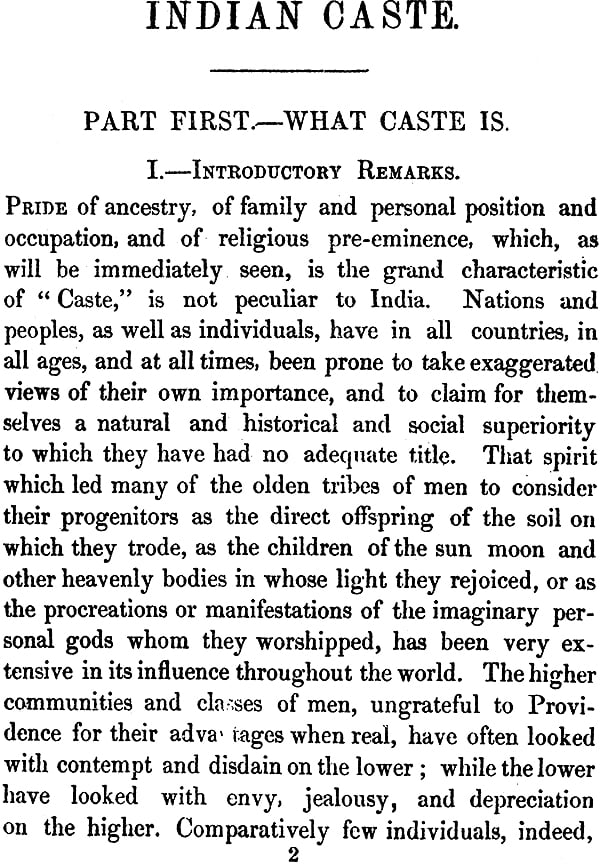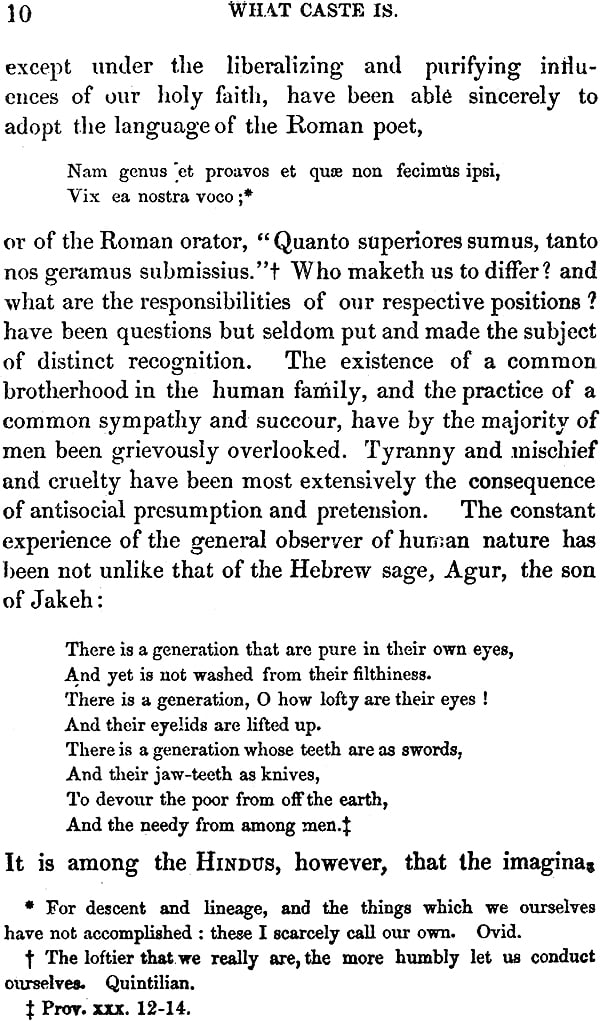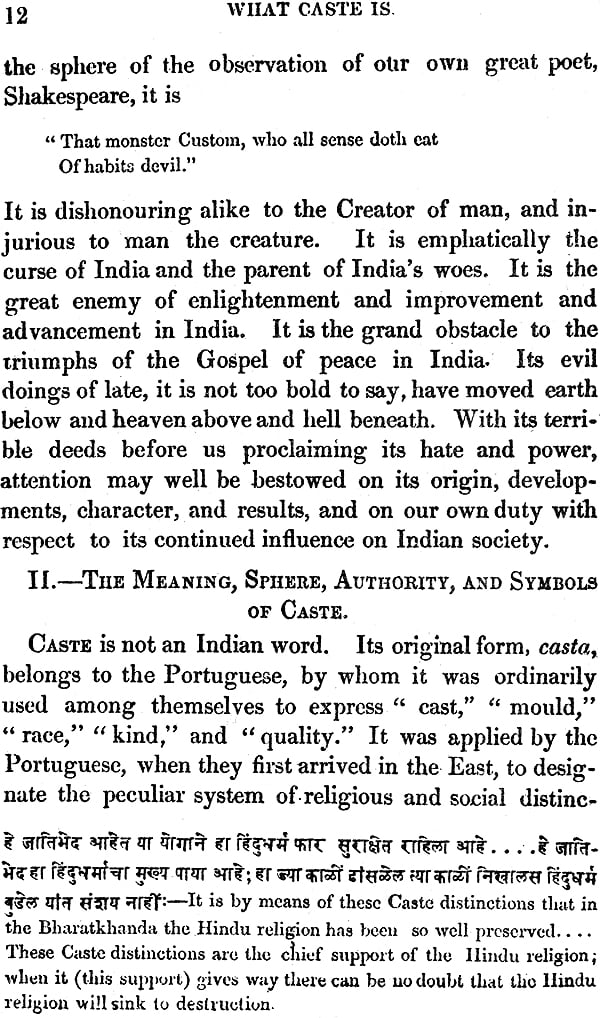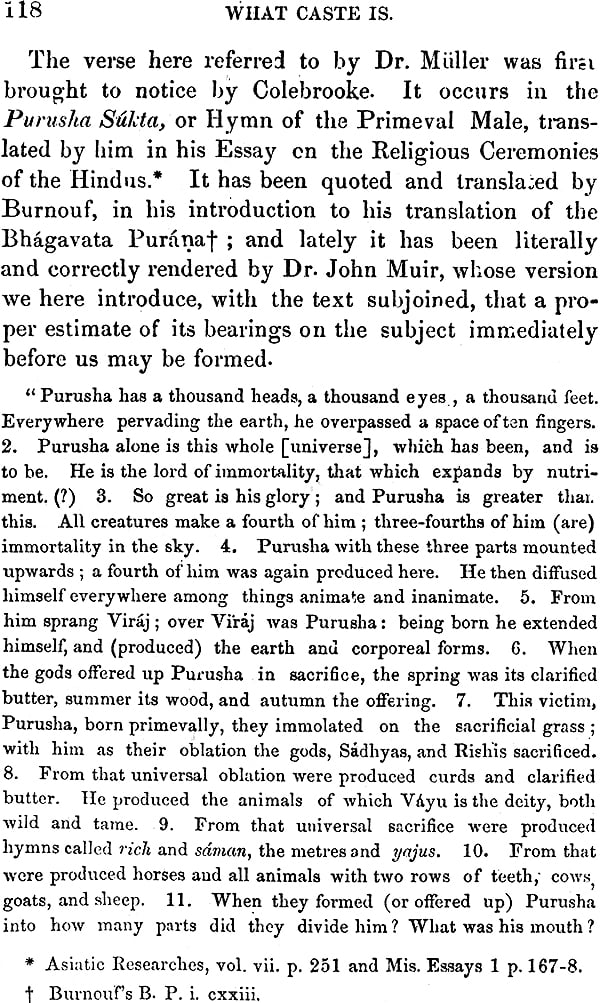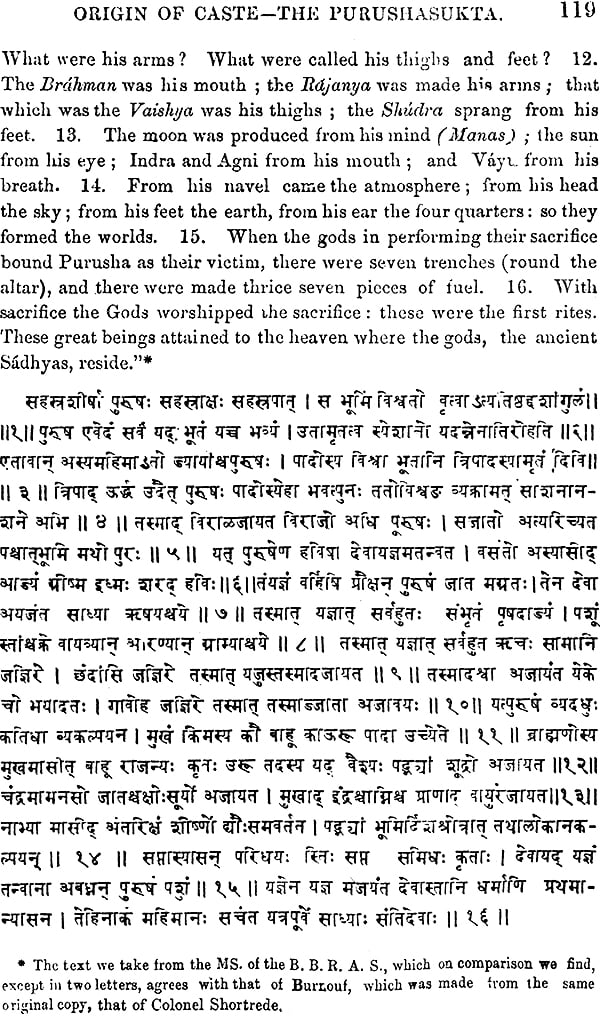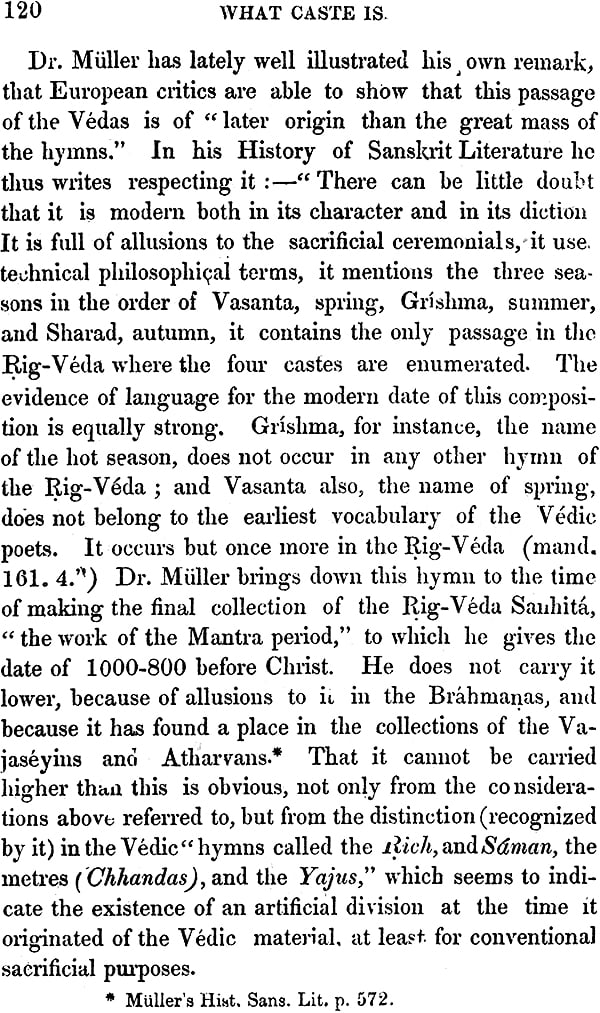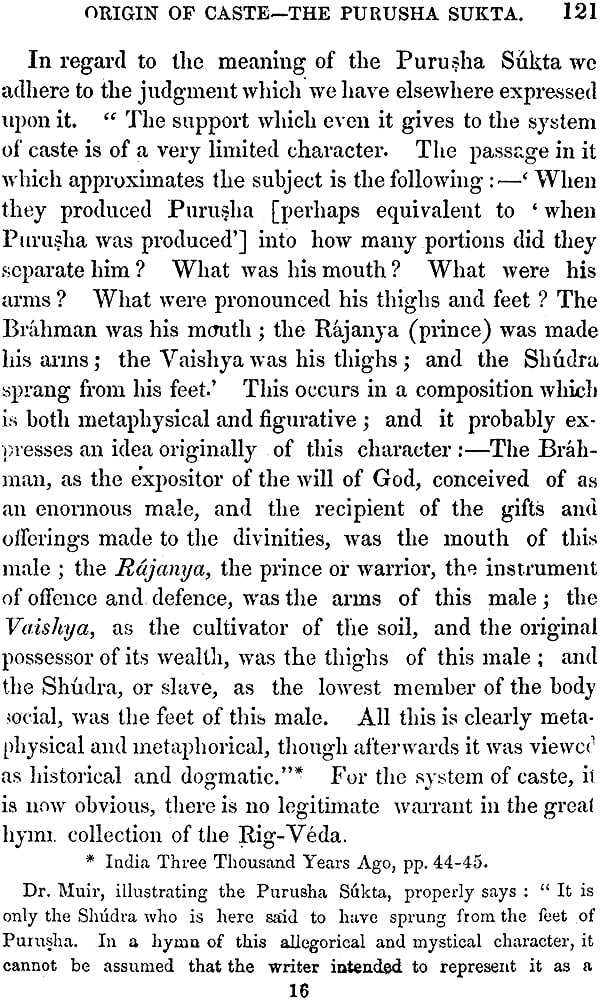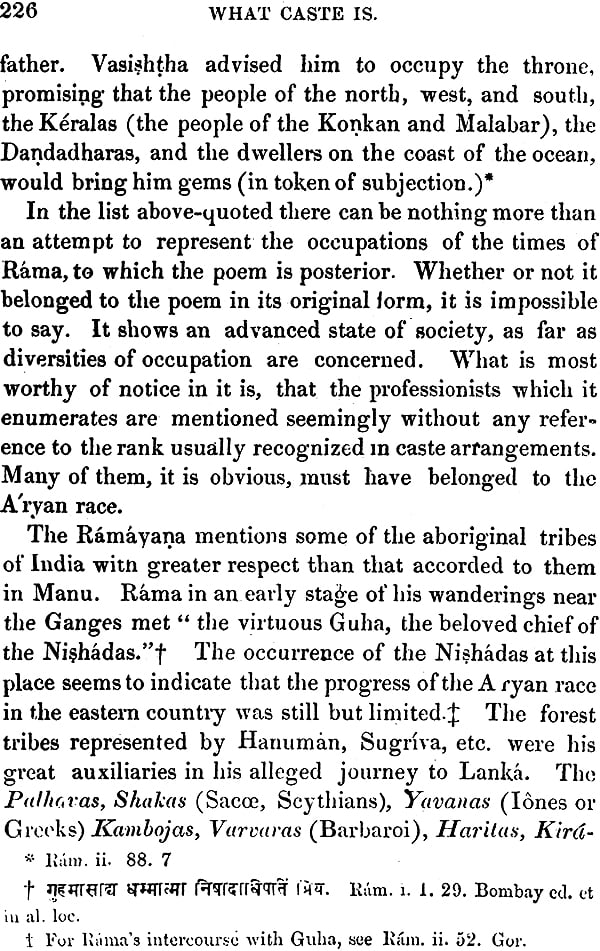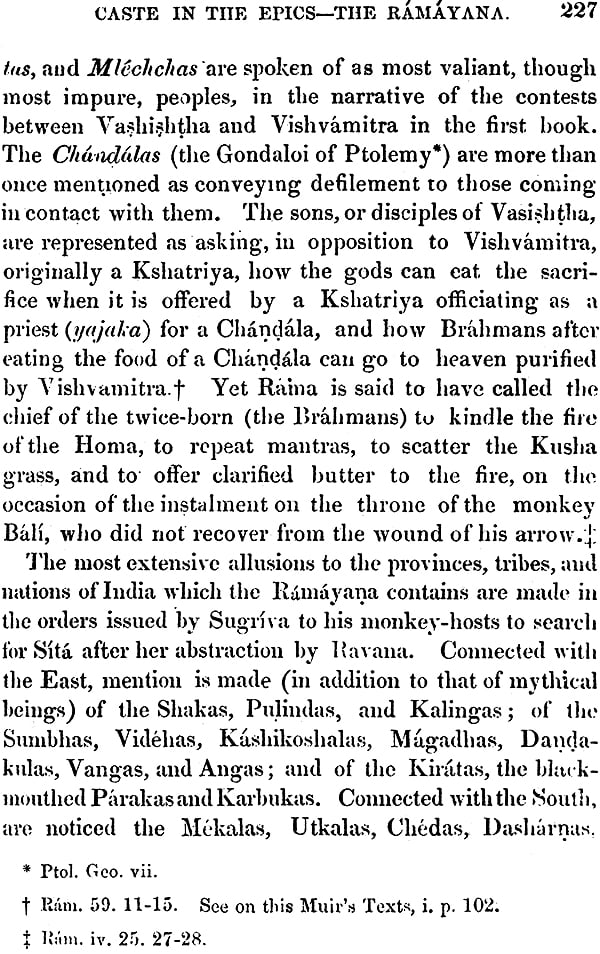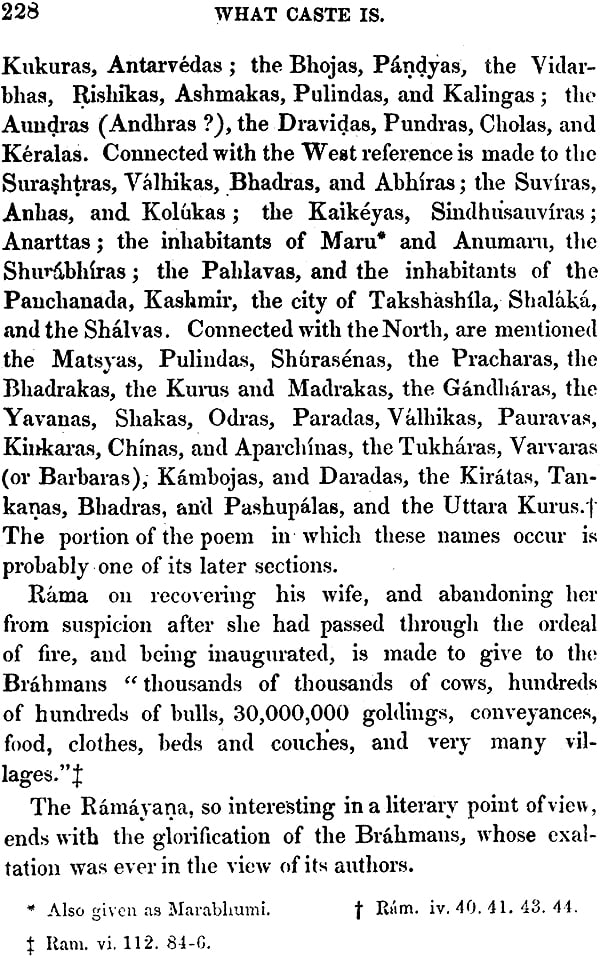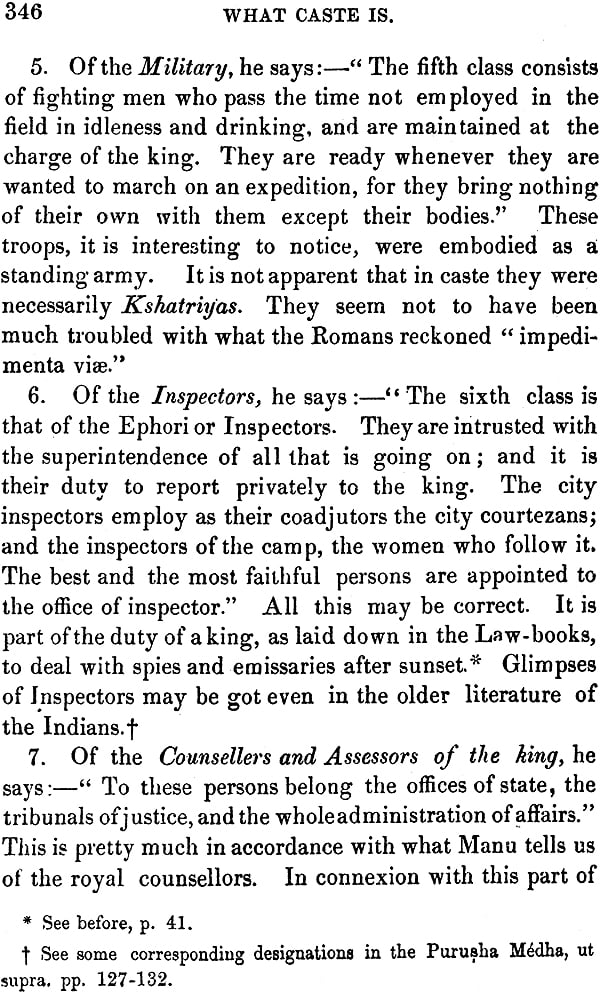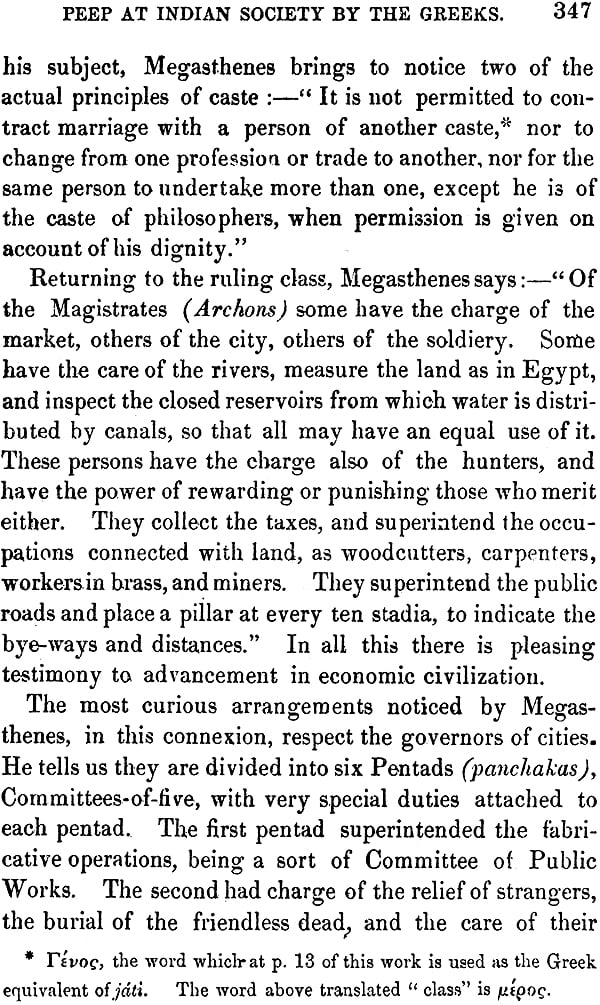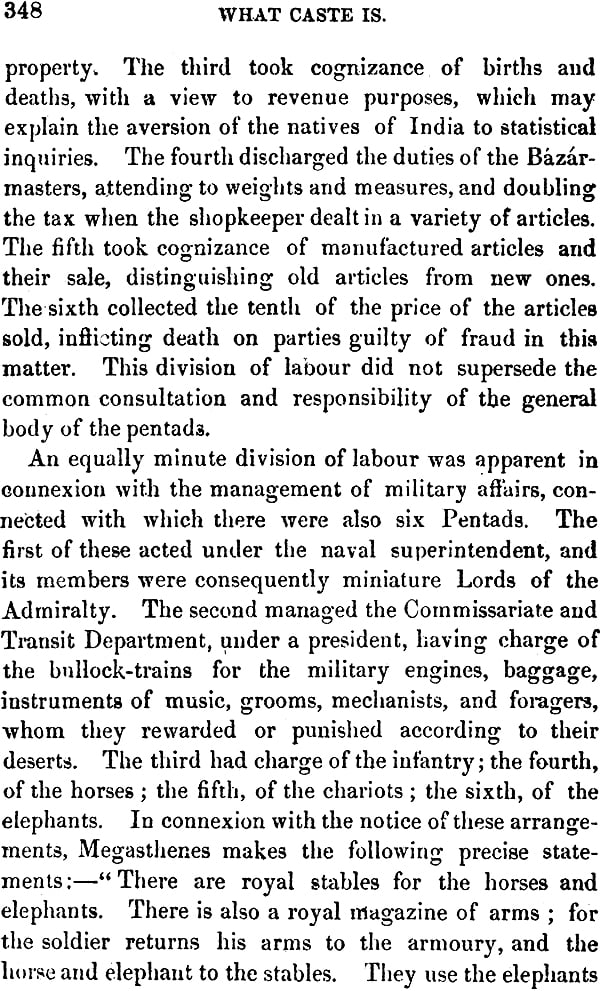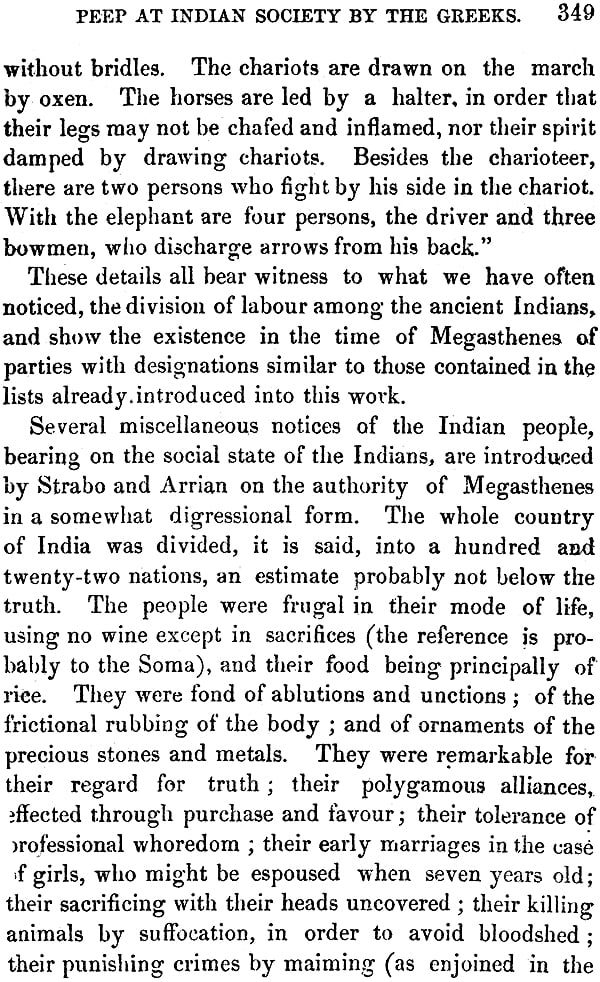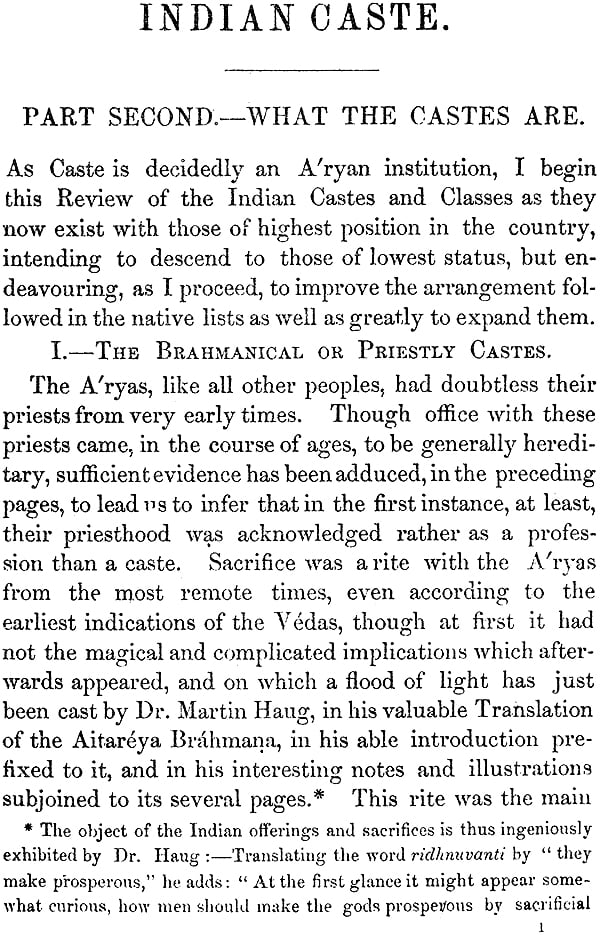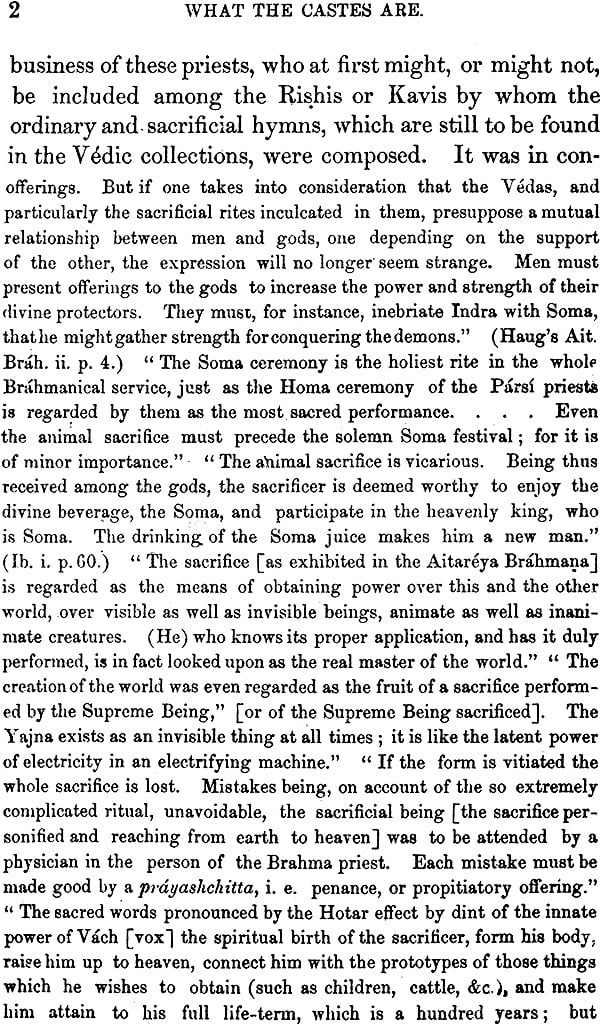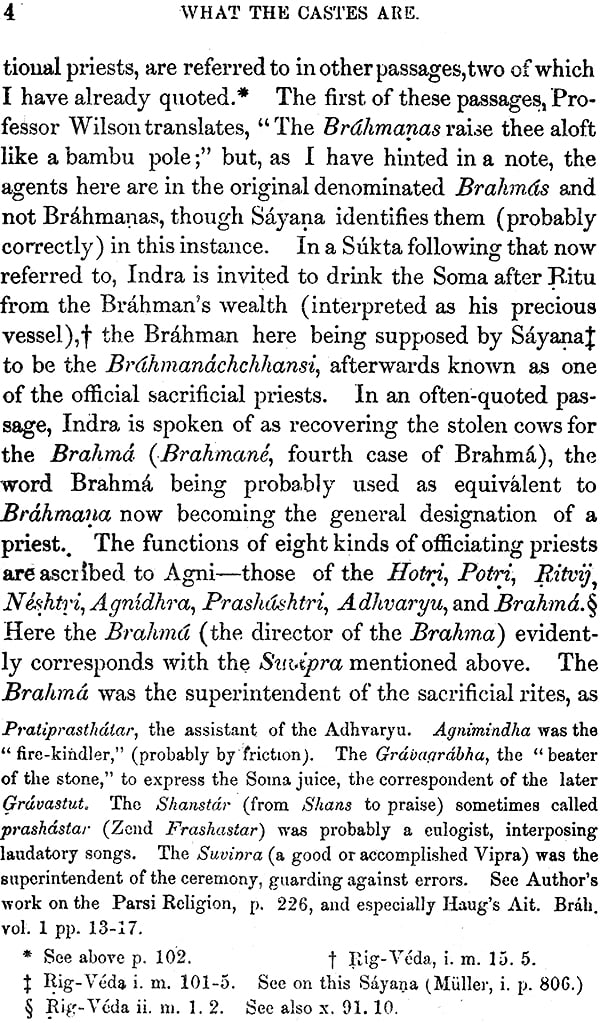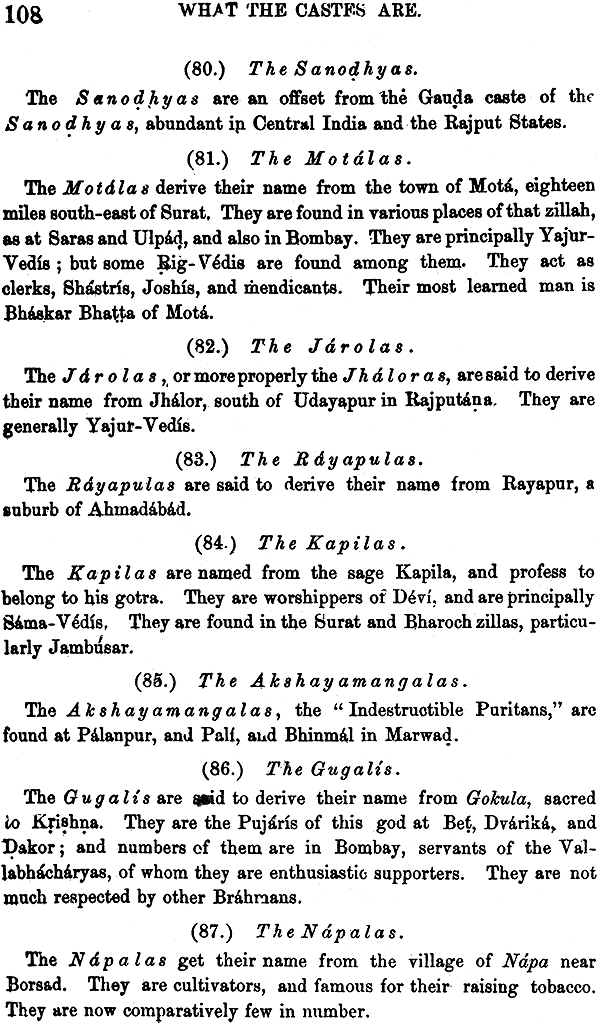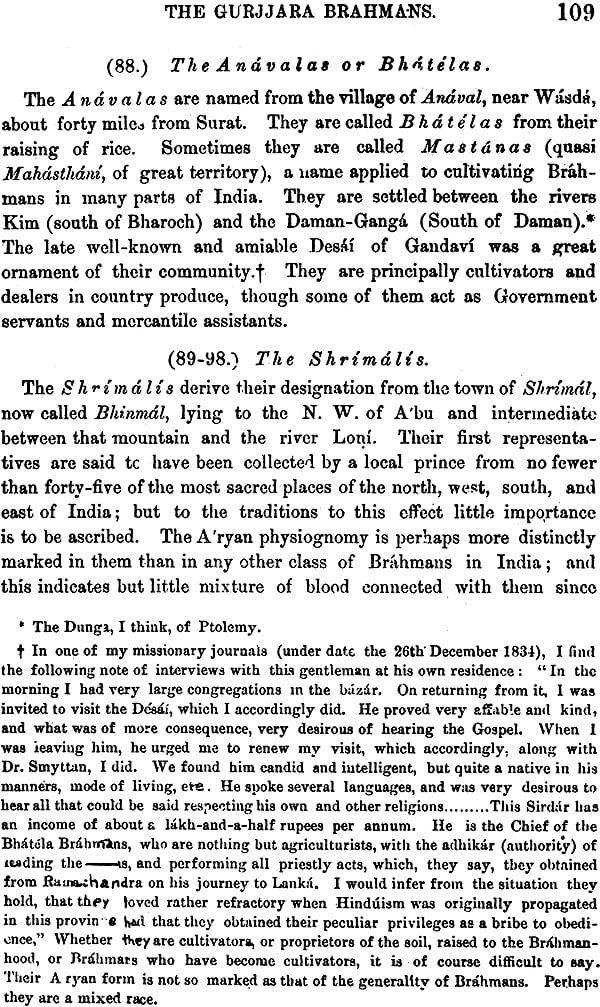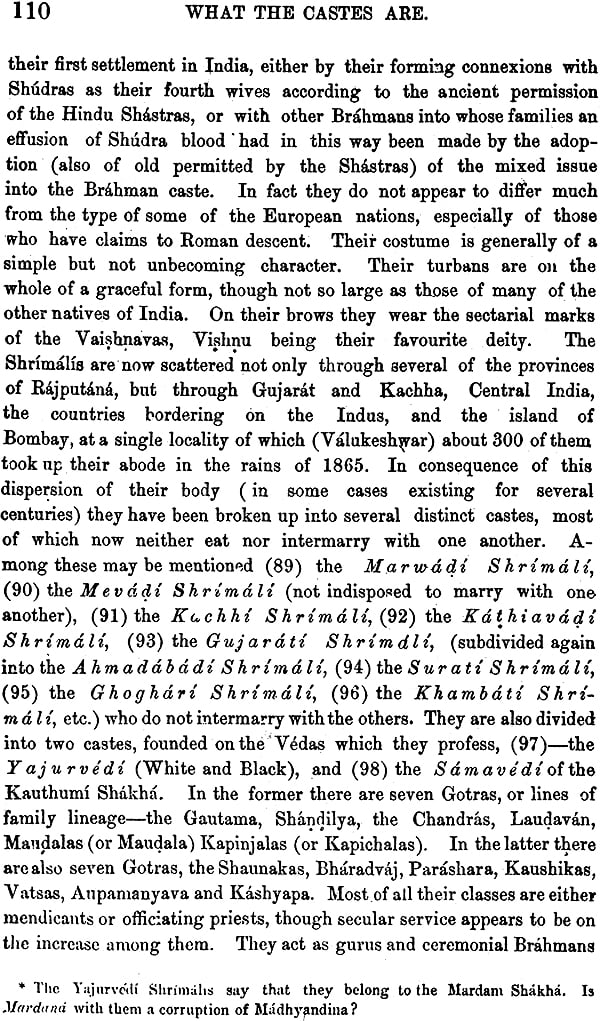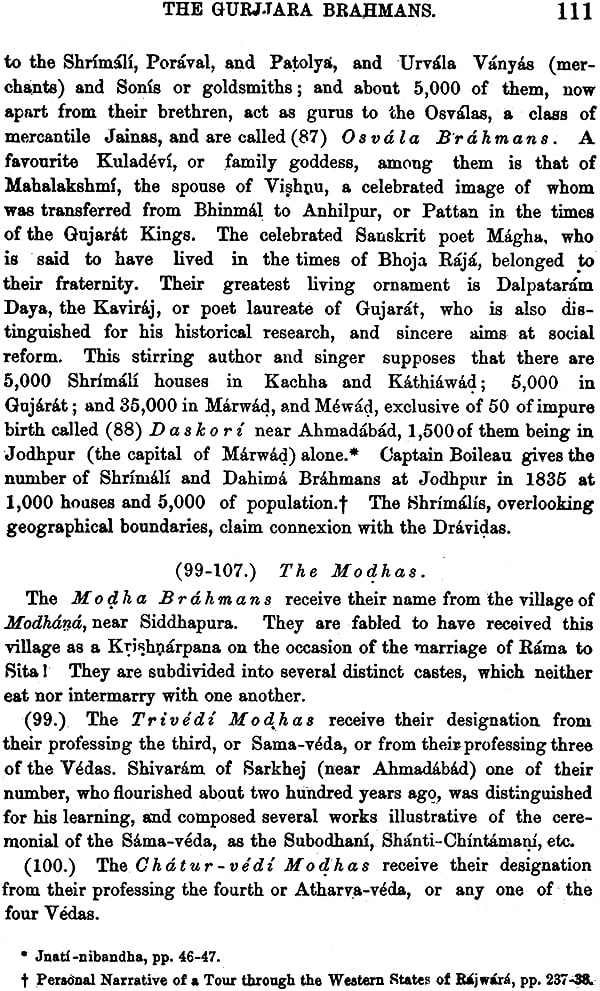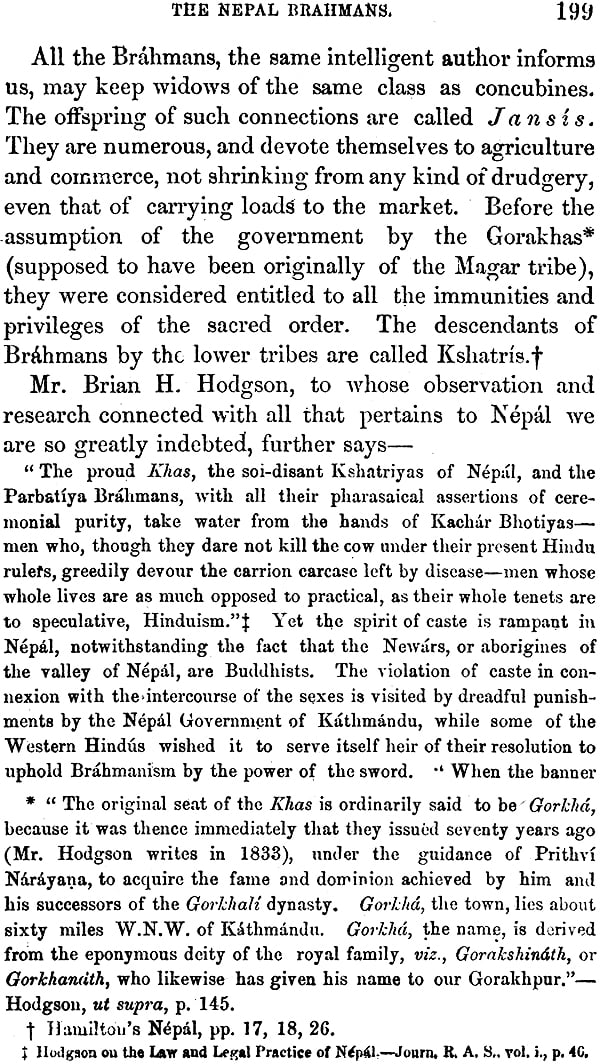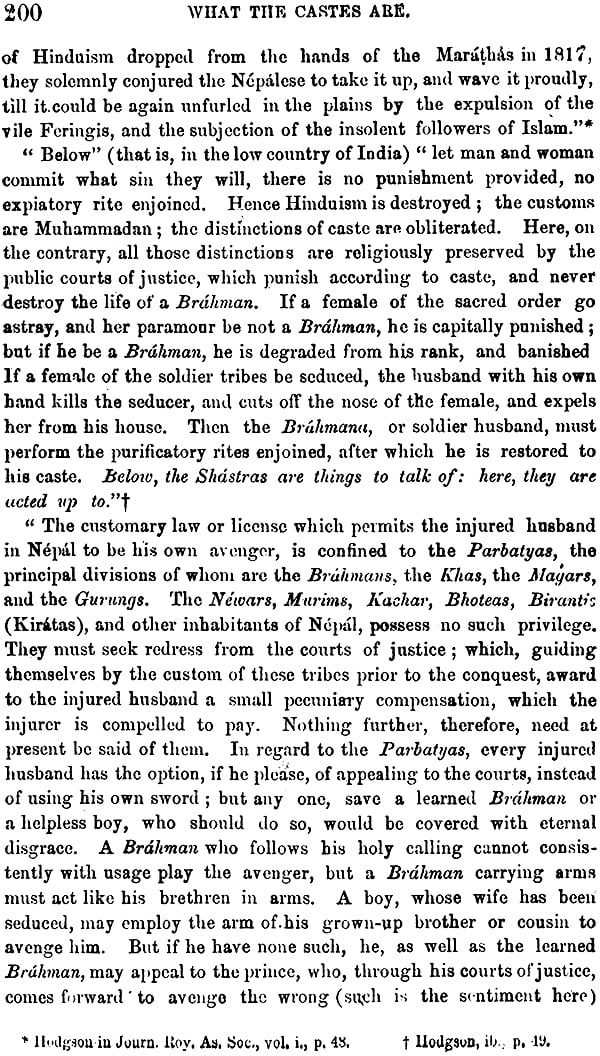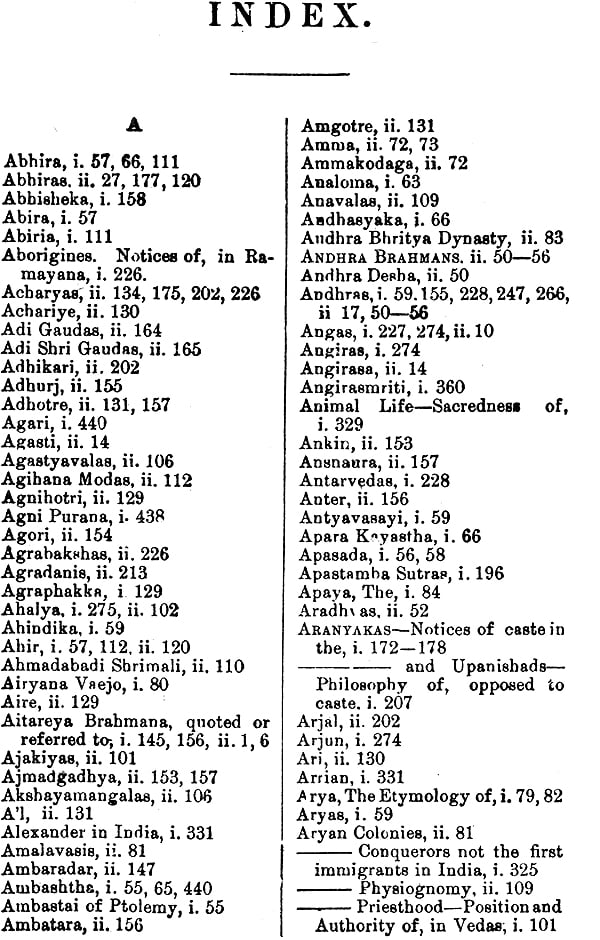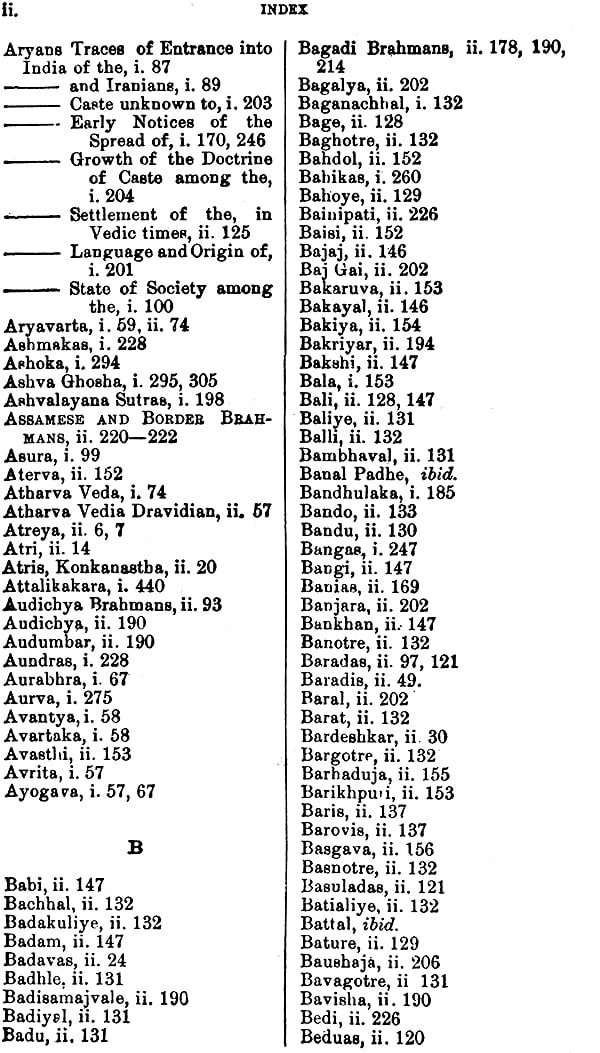
Indian Caste in Two Volumes (An Old and Rare Book)
Book Specification
| Item Code: | NAN004 |
| Author: | John Wilson |
| Publisher: | Manohar Publishers and Distributors |
| Language: | English |
| Edition: | 1985 |
| Pages: | 700 |
| Cover: | Hardcover |
| Other Details | 9.0 inch x 5.5 inch |
| Weight | 1.30 kg |
Book Description
This is a reprint of Rev. John Wilson’s celebrated work on the doctrine and practice of caste in India that was published posthumously in 1877. Pride of ancestry, of family and personal position and occupation, and of religious pre-eminence which is the grand characteristic of “caste”, is not peculiar to India. But it was in India that the caste system exhibited its most fearful and pernicious development. While in its original form the system may have lent strength and stability to Hindu society, it later degenerated into a stranglehold of the worst kind and became, in the author’s words. “the curse of India and parent of India’s woes”.
In this work Dr. Wilson, Scottish missionary and orientalist, examines the origin, development, character and results of the caste in India. The book which is based on the labour of about twenty years is in two volumes. Volume I entitled What Caste is contains a comprehensive discussion of the institution of the caste as it is set forth and as it later evolved, in ancient Hindu texts from the Vedas to the Puranas, and also as it was viewed by early Buddhist and Greek writers. Volume II entitled What Castes Are deals with the Brahmanical or the priestly caste that comes on the top of the caste hierarchy, in all its bewildering variety.
The author had apparently intended to write on other castes as well but before he could do so he died in December 1875.
Originally published more than a hundred years ago, this book still remains a monumental and authoritative work on the subject.
Rev. John Wilson (1804-1875), D.D. FRS came to India as a missionary in 1829, and here he labored- from 1843 under the Free Church of Scotland- till his death. He actively promoted vernacular education and strove for legal and social reforms.
During 1948-61 he was President of the “Cave Temple Commission” to examine the antiquities connected with the cave temples. In the mutiny he deciphered the rebel’ cryptic correspondence.
He was twice President of the Bombay branch of the Asiatic Society and become Vice- Chancellor of Bombay University in 1868. He died on December 1, 1875, near Bombay.
His other works include; Parsi Religion Unfolded (1843); land of the Bible (1847); History of the Suppression of Infanticide in W. India (1855); India Three Thousand Years Ago (1858), etc.
| Part First- What Caste is. | ||
| Section I | Introductory Remarks | 9-12 |
| Section II | The Meaning, Sphere, Authority and Symbols of Caste | 12-17 |
| Section III | Orthdox View of the Four Original Castes. | 17-53 |
| Section IV | Orthdox View of the Mixed Castes. | 53-72 |
| Section V | Origin and Development of Indian Caste | 73-211 |
| Section VI | Caste in the Indian Epics | 212-277 |
| Section VII | The Buddhist View of Caste | 278-315 |
| Section VIII | A peep at Indian Society by the Greeks | 315-358 |
| Section IX | Caste in the Law Books and Later Indian Literature | 354-418 |
| Section X | Caste in the Harivansha | 418-422 |
| Section XI | Caste in the Puranas | 422-450 |
| Part Second- What the Castes are | ||
| Section I | The Brahmanical or Priestly Castes | 1-228 |
| First Distinctions among the Brahman | 5 | |
| General Divisions of the Brahmans | 17 | |
| The Five Dravidas | 17-123 | |
| The Maharastra Brahmans | 17 | |
| Political History of the Maratha Brahmans | 30 | |
| The Andhra or Tailanga Brahmans | 50 | |
| The Dravidian Brahmans | 56 | |
| The Karnatika Brahmans | 60 | |
| The Konkani Brahmans | 64 | |
| The Hubu Brahmans | 65 | |
| The Gaukarna Brahmans | 66 | |
| The Haiga Brahmans | 66 | |
| The Tulava Brahmans | 68 | |
| The Amma Kodaga or Kaveri Brahmans | 72 | |
| The Namburi Brahmans | 73 | |
| The Gurjjara Brahmans | 91 | |
| The Five Gaudas | 124-228 | |
| The Sarasvata Brahmans | 124 | |
| The Kashmiri Brahmans | 140 | |
| The Kanyakubja Brahmans | 148 | |
| The Gauda Brahmans | 159 | |
| The Rajputana Brahmans | 166 | |
| The Central India Brahmans | 187 | |
| The Maithila Brahmans | 192 | |
| The Nepal Brahmans | 196 | |
| The Bengali Brahmans | 203 | |
| The Assamese and South- East Border Brahmans | 220 | |
| The Odradesha or Utkala Brahmans | 222 |
